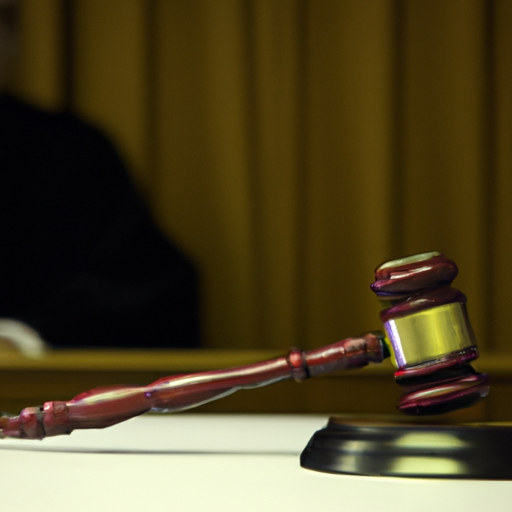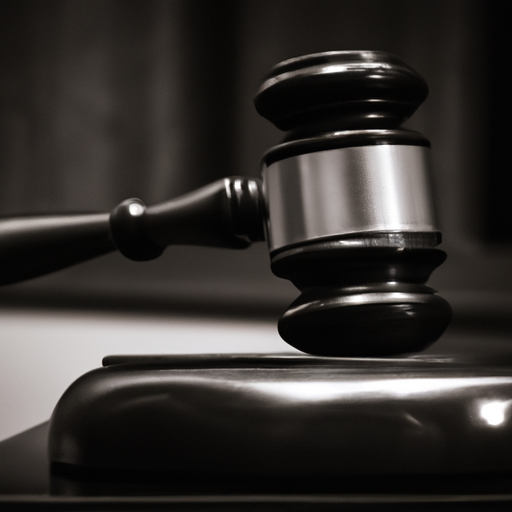Thinking about investing in a co-working space in the realm of commercial real estate? It’s crucial to understand the legal aspects that come along with it. From lease agreements to property zoning, this article will provide you with a comprehensive overview of the legal intricacies surrounding co-working spaces. Whether you’re a property owner or a potential tenant, navigating the legal landscape can be daunting. However, with the guidance of an experienced commercial real estate lawyer like Jeremy Eveland, you can ensure a smooth and successful venture into the world of co-working spaces.
Zoning and Building Codes
Understanding local zoning laws
When it comes to co-working spaces in commercial real estate, understanding local zoning laws is crucial. Zoning laws determine how a property can be used and what types of activities are allowed in a given area. This is important because co-working spaces often fall into a unique category that may not fit neatly into existing zoning regulations. It is essential to research and understand the specific zoning requirements for co-working spaces in your area to ensure compliance with all zoning restrictions. Failure to do so could result in fines, penalties, or even the closure of your co-working space.
Compliance with building codes
In addition to zoning laws, co-working space providers must also comply with building codes. Building codes are a set of regulations that govern the design, construction, and safety of buildings. These codes cover a wide range of aspects, including fire safety, electrical systems, plumbing, and accessibility. It is important to work with a qualified architect or contractor who has experience with commercial real estate and understands the specific building codes that apply to co-working spaces. Failure to comply with building codes could lead to serious safety hazards and legal consequences.
Permits and licenses required
Operating a co-working space in commercial real estate often requires obtaining various permits and licenses. The specific permits and licenses needed will vary depending on factors such as location, size, and services offered. Common permits and licenses include business licenses, occupancy permits, fire department permits, and health department permits. It is important to research and understand the specific requirements in your area and ensure that all necessary permits and licenses are obtained before opening your co-working space. Failure to do so could result in fines, closure, or other legal consequences.
Lease Agreements
Key provisions in co-working lease agreements
When entering into a lease agreement for a co-working space, it is crucial to understand the key provisions that should be included in the agreement. These provisions will help protect both the co-working space provider and the co-working members. Key provisions may include details about the term of the lease, rental rates, security deposits, and any restrictions on the use of the space. Additionally, the lease agreement should outline any responsibilities and obligations of the co-working space provider and the co-working members. It is important to work with an experienced commercial real estate lawyer to ensure that your lease agreement includes all necessary provisions to protect your interests.
Responsibilities of co-working space providers
Co-working space providers have various responsibilities to ensure the smooth operation of their spaces. These responsibilities may include maintaining the common areas, providing necessary amenities such as Wi-Fi and utilities, and ensuring the safety and security of the premises. It is important for co-working space providers to clearly outline these responsibilities in the lease agreement and fulfill them accordingly. Failure to meet these responsibilities could result in dissatisfaction among co-working members and potential legal issues.
Rights and obligations of co-working members
Co-working members also have rights and obligations when it comes to utilizing a co-working space. These rights may include access to the premises during certain hours, the use of common areas and amenities, and the ability to network and collaborate with other members. On the other hand, obligations may include adhering to the rules and regulations of the space, respecting the privacy and property of others, and paying rent and other fees on time. It is important for co-working members to thoroughly read and understand the terms and conditions outlined in the lease agreement to ensure they are aware of their rights and obligations.

Insurance Coverage
General liability insurance
Having proper insurance coverage is essential for any co-working space provider. General liability insurance protects against third-party claims of bodily injury or property damage that may occur within the co-working space. This coverage can help protect your business from costly lawsuits and legal expenses. It is important to work with an insurance agent who specializes in commercial real estate to determine the appropriate level of coverage for your co-working space.
Property insurance
Property insurance is another crucial aspect of insurance coverage for co-working spaces. This coverage protects the physical property of your co-working space, including furniture, equipment, and fixtures, against loss or damage due to fire, theft, or other covered perils. Property insurance can help ensure that your business can quickly recover from any unexpected events. It is important to accurately assess the value of your property and work with an insurance provider who understands the unique needs of co-working spaces.
Professional liability insurance
Professional liability insurance, also known as errors and omissions insurance, is important for co-working spaces that provide any professional services or advice. This coverage protects against claims of negligence, errors, or omissions that may arise from the provision of professional services. If a co-working member or client suffers a financial loss due to alleged professional negligence, professional liability insurance can help cover the costs of legal defense and any damages awarded. It is crucial for co-working spaces that offer professional services to consult with an insurance professional to determine the appropriate level of coverage for their specific needs.
Intellectual Property Rights
Protection of intellectual property in co-working spaces
Co-working spaces often foster creativity and collaboration, making them a hub for innovation. However, it is important to address the protection of intellectual property rights within the co-working environment. Co-working space providers should implement policies and procedures to ensure that intellectual property created by co-working members is protected. This may include confidentiality agreements, secure storage for sensitive information, and policies around the use and disclosure of intellectual property. It is crucial for co-working space providers to prioritize the protection of intellectual property rights to foster a trusting and innovative environment.
Ownership of intellectual property created in co-working spaces
Determining ownership of intellectual property created in co-working spaces can sometimes be complex. It is essential to clearly define ownership rights in the co-working lease agreement. In some cases, the intellectual property may be owned by the individual creator, while in others, it may be owned jointly by the co-working member and the co-working space provider. It is important to consult with a commercial real estate lawyer to ensure that ownership rights are properly addressed and protected in the co-working space.
Data Privacy and Security
Data protection regulations
With the increasing reliance on technology in co-working spaces, data privacy and security should be a top priority. Co-working space providers should comply with applicable data protection regulations, such as the General Data Protection Regulation (GDPR) in the European Union or the California Consumer Privacy Act (CCPA) in the United States. It is important to implement strict data protection policies, including secure storage of personal information, regular data backups, and protocols for handling data breaches. Co-working members should also be made aware of the data protection measures in place to ensure transparency and trust.
Cybersecurity measures
Co-working spaces are a prime target for cyber attacks due to the vast amount of sensitive information stored and shared within the space. Implementing robust cybersecurity measures is essential to protect against data breaches and unauthorized access to sensitive information. This may include securing Wi-Fi networks, regularly updating software and systems, conducting vulnerability assessments, and providing cybersecurity training to co-working members. It is important for co-working space providers to work with cybersecurity experts to develop and implement a comprehensive cybersecurity strategy.
Confidentiality agreements
Confidentiality agreements play a crucial role in protecting sensitive information within the co-working environment. Co-working space providers should require co-working members to sign confidentiality agreements to prevent the unauthorized disclosure of confidential information. These agreements should outline what information is considered confidential, the obligations of the parties regarding confidentiality, and any penalties for breach of confidentiality. It is important for co-working members to understand the importance of confidentiality and the potential legal consequences of violating confidentiality agreements.
Dispute Resolution
Mediation and arbitration clauses in co-working agreements
To minimize potential conflicts and disputes in co-working spaces, it is advisable to include mediation and arbitration clauses in co-working agreements. Mediation involves a neutral third party assisting the parties in reaching a mutually acceptable resolution, while arbitration involves a neutral third party making a binding decision on the dispute. These alternative dispute resolution methods can be faster, more cost-effective, and less adversarial than traditional litigation. By including mediation and arbitration clauses in co-working agreements, co-working space providers can promote efficient and amicable dispute resolution.
Litigation and court proceedings
In some cases, disputes in co-working spaces may escalate to the point where legal action is necessary. This could involve filing a lawsuit in court and engaging in court proceedings to resolve the dispute. Litigation can be a lengthy and costly process, often straining relationships and causing disruption to the co-working environment. However, in certain situations, litigation may be the only option to protect your rights and interests. It is important to consult with a commercial real estate lawyer to determine the best course of action when faced with a dispute in a co-working space.
Enforcement of dispute resolution provisions
To ensure the effectiveness of dispute resolution provisions in co-working agreements, it is important to include enforcement mechanisms. This may involve specifying the process for initiating mediation or arbitration, designating a specific mediator or arbitrator, and outlining the consequences for non-compliance with the agreed-upon dispute resolution process. By clearly defining the steps and consequences of dispute resolution, co-working space providers can encourage compliance and resolve disputes in a timely and efficient manner.

Employment Law
Employee vs. independent contractor classification
Co-working spaces may employ individuals in various capacities, raising questions about whether these individuals should be classified as employees or independent contractors. It is crucial to properly classify workers to comply with employment laws and avoid potential legal issues. Factors such as the level of control, the presence of a written contract, and the nature of the work performed should be considered when determining the appropriate classification. It is important to consult with an employment law attorney to ensure compliance with applicable laws and regulations.
Wage and hour laws
Co-working space providers must also comply with wage and hour laws, which regulate minimum wage, overtime pay, and other aspects of employee compensation. It is important to accurately classify employees as exempt or non-exempt and ensure that all employees are paid the appropriate wages for their work. Failure to comply with wage and hour laws can result in costly litigation and penalties. Staying informed about the latest updates in wage and hour laws and consulting with an employment law attorney can help ensure compliance.
Discrimination and harassment policies
Creating a safe and inclusive environment is essential in co-working spaces. Co-working space providers should establish clear policies and procedures to address discrimination and harassment in the workplace. These policies should prohibit discrimination based on protected characteristics such as race, gender, religion, and disability, and provide a reporting mechanism for employees to raise concerns. By prioritizing a respectful and inclusive culture, co-working spaces can foster a positive working environment and minimize legal risks.
Accessibility Compliance
ADA compliance for co-working spaces
Co-working spaces must comply with the Americans with Disabilities Act (ADA), which prohibits discrimination against individuals with disabilities and requires accessibility for all. This includes ensuring that the co-working space is accessible to individuals with disabilities, such as providing wheelchair ramps, accessible parking, and accessible restrooms. It is important to consult with an ADA compliance expert to assess your co-working space and ensure compliance with all relevant accessibility regulations.
Reasonable accommodations for individuals with disabilities
In addition to physical accessibility, co-working space providers should also be prepared to provide reasonable accommodations for individuals with disabilities. Reasonable accommodations may include modifications to policies, practices, or procedures to ensure equal access and opportunity for individuals with disabilities. Co-working space providers should engage in an interactive process with individuals requesting accommodations and work towards finding reasonable solutions that meet their needs. It is important to consult with a commercial real estate lawyer to understand your obligations and ensure compliance with disability accommodation laws.

Tax Considerations
Tax implications for co-working space providers
Co-working space providers must consider the tax implications of operating a co-working space. This may include income tax, property tax, and sales tax obligations. It is important to consult with a tax professional who specializes in commercial real estate to determine the specific tax obligations for your co-working space and ensure compliance with all relevant tax regulations. Proper tax planning can help minimize tax liability and avoid potential penalties or audits.
Tax deductions for co-working members
Co-working members may also have tax deductions available to them based on their use of the co-working space for business purposes. These deductions may include expenses related to rent, utilities, and business supplies. Co-working members should consult with a tax professional to understand the specific deductions available to them and ensure accurate reporting on their tax returns. Taking advantage of available tax deductions can help reduce the overall tax burden for co-working members.
Sales and use tax obligations
Co-working space providers should also be aware of their sales and use tax obligations. Depending on the jurisdiction, co-working spaces may be required to collect and remit sales tax on the services provided to co-working members. It is important to understand the specific sales and use tax regulations in your area and ensure compliance to avoid penalties or audits. Working with a tax professional can help ensure accurate reporting and compliance with all relevant sales and use tax requirements.
Health and Safety Regulations
Compliance with health and safety standards
Maintaining a safe and healthy environment is important in co-working spaces. Co-working space providers should comply with health and safety standards, including regulations related to hygiene, ventilation, and sanitation. This may involve regular inspections, implementing cleaning protocols, and providing adequate facilities and resources for maintaining a safe environment. Adhering to health and safety regulations not only protects the well-being of co-working members but also helps prevent legal liability.
Emergency preparedness
Co-working spaces should have comprehensive emergency preparedness plans in place to address unforeseen events such as natural disasters, fires, or medical emergencies. These plans should include evacuation procedures, emergency contacts, and protocols for communication and coordination. Co-working space providers should regularly review and update these plans to ensure they are effective and aligned with current best practices. By prioritizing emergency preparedness, co-working spaces can help protect the safety of their members and minimize potential legal risks.
Occupational safety requirements
Co-working spaces should also comply with occupational safety requirements to protect the health and well-being of their employees and co-working members. This may include providing appropriate safety training, ensuring proper ergonomics, and addressing potential hazards in the workspace. Co-working space providers should assess the specific occupational safety requirements applicable to their operations and implement measures to promote a safe working environment. Regular assessments and ongoing monitoring can help identify and address safety concerns.
In conclusion, co-working spaces in commercial real estate come with a range of legal aspects that must be carefully considered. Understanding and complying with local zoning laws and building codes is essential to ensure the legal operation of a co-working space. Lease agreements play a vital role in outlining the key provisions and responsibilities of both co-working space providers and members. Adequate insurance coverage, such as general liability, property, and professional liability insurance, is necessary to protect against various risks. Intellectual property rights should be protected, and ownership of intellectual property created within co-working spaces should be clearly defined. Data privacy and security measures, as well as appropriate dispute resolution mechanisms, are crucial in maintaining a smooth and secure co-working environment. Compliance with employment law, accessibility regulations, tax obligations, and health and safety standards is essential to mitigate legal risks. By understanding and addressing these legal aspects, co-working space providers can create a conducive and legally compliant environment for their members.


















































